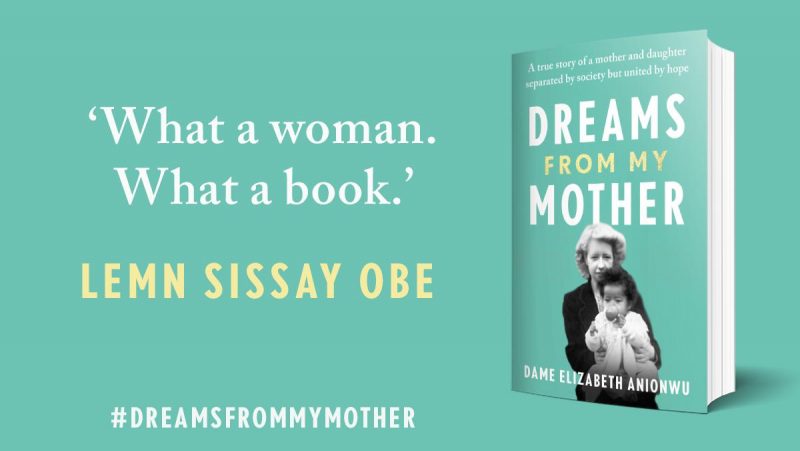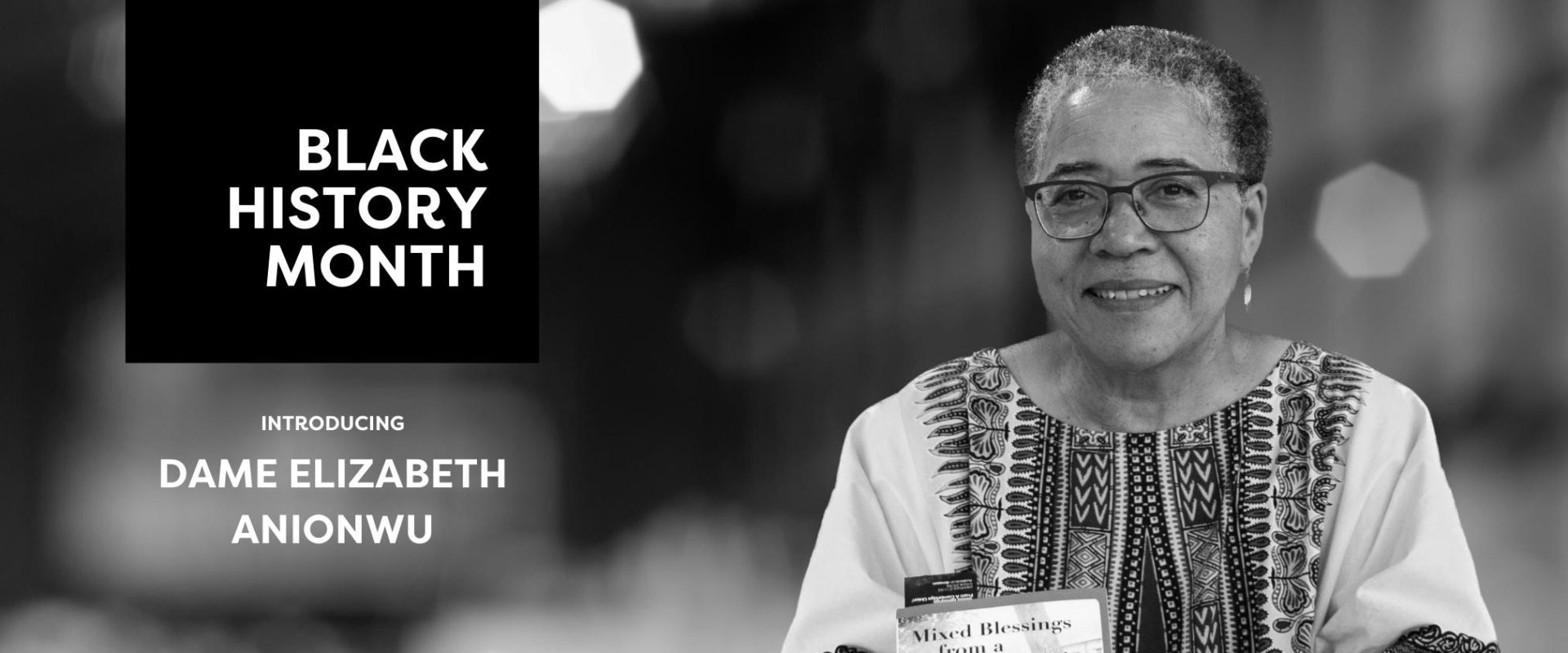For Black History Month, we are incredibly grateful to speak with healthcare pioneer Dame Elizabeth Anionwu. Her contributions to the nursing and healthcare profession are truly revolutionary and inspiring for all.
Elizabeth didn’t have the easiest start in life: she was placed in a children’s home from an early age, where she stayed for 9 years. Despite this, she has positive memories from that time as her mother would regularly visit her throughout the years.
Elizabeth’s mother was of Irish descent and her father was Nigerian, her parents met whilst at university, but would not go on to marry. Elizabeth identified from the early age of around 4 years old that she wanted to become a nurse. Elizabeth’s own personal experience suffering from bad eczema as a child, would lead her to a future career in nursing. Elizabeth stated,
“When I had to have my dressings removed it was extremely painful, there was only one nun who used to remove them without causing me any pain, she used to distract me with laughter, I discovered she was a nurse. She made a deep long-lasting impression on me.”
Elizabeth was urged to go to university by many of her peers, however her mind was made up, and she would go on to pursue a career in nursing, which she “never regretted”. Elizabeth would go on to have an incredibly successful nursing career. Her first major milestone was becoming the first UK Sickle Cell Nurse Counsellor in 1979.
Elizabeth would later go on to reconnect with her father. Through this reunion she discovered some family members from the Nigerian side of her family suffered from sickle cell disease, she was able to give them help, information and support as a specialist. She would then go on to join the Institute of Child Health at the University of London, where she ran courses with a multi-ethnic approach to community genetic counselling. Elizabeth would go on to research Sickle Cell disease, Thalassemia, Tay-Sachs disease and Cystic Fibrosis.
Elizabeth commented:
“I was fascinated that we are often divided up into ethnic groups and how society can cause divisions. I thought this was a useful way of enabling healthcare professionals and others to realise that parents and couples from different ethnic groups can be facing the same moral dilemmas and ethical issues in terms of reproductive planning. Bringing these 4 very different conditions together, allowed healthcare professionals to support families from these very different backgrounds.”
In 2001 Elizabeth was awarded a CBE for services to nursing. In 2004 she was presented with the Royal College of Nursing Fellowship (FRCN) for her work in the development of nurse-led sickle cell and thalassaemia counselling services, education and leadership in transcultural nursing. Elizabeth was honoured with a Damehood (DBE) in 2017 for her services to nursing and the Mary Seacole Statue Appeal.
Elizabeth spoke about the issue of underrepresentation of ethnic minorities in healthcare and the effect this has of deterring people away from a healthcare career. Some of our students have reached out to us about convincing parents that a STEM career is the right choice for them. We asked Elizabeth about dealing with parents that may feel hesitant, or reluctant, to point a child in this direction in fear or hitting a ‘brick ceiling‘. She urges children to “sit down and talk” to their parents and “be presented with examples of people that have succeeded” and “use online resources”.
In terms of her own inspirations Elizabeth cites the great Nelson Mandela as a role model, “he was the first person to inspire me that you can overcome challenges, and was prepared to die for his own beliefs”. Also, the late David Pitt was a big inspiration, he was a British Labour Party politician, general practitioner and political activist, who was the longest serving Black Parliamentarian.
Elizabeth comments that we can all help create change, “by recognising and calling out inappropriate behaviour and racism, we need to offer support to individuals who need it, we all have to show courage in different ways”.
You can find out more about Dame Elizabeth’s life and career in her new book Dreams From My Mother.

*Dame Elizabeth shared the following groups as useful resources for black healthcare professionals: Nigerian Medical Association, Nurses Association of Jamaica, Melanin Medics, NHS Workforce Race Equality Standard
